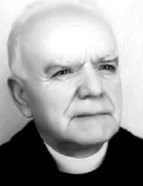

Although his historical studies earned him membership in various historical academies and associations, Domingos Maurício was not, nor could he be considered, a strictu sensu scholar. Not only did he never teach at a university, but it was also never his goal to write on history following methods or topics within a clearly-defined academic framework. Nevertheless, he held clear ideas regarding the methodology and what might be termed the philosophy of history (1957 and 1964). His historiographical work, particularly on medieval and Jesuit topics, was innovative and even iconoclastic, moving beyond conventional ideas and drawing on original or previously unexplored or insufficiently contextualised documentation. This was his contribution, deeply rooted in his Catholic worldview, shaped only by the uncertainties that heuristics imposed upon him.
He did not publicly engage in or contradict the heated debates of his time; however, he did offer doctrinal insights on relevant issues or figures, or occasionally noted the ongoing discussions: on Damião de Góis and António Vieira before the Inquisition (1938 and 1958); on Pombal, the Jesuits, and Freemasonry (1965, 1969, and 1973); and on the prolonged debate between António José Saraiva and I. Revah regarding the Inquisition and New Christians (1971). He also took a stance on certain works by José Sebastião da Silva Dias (1962) and A. H. de Oliveira Marques (1973).
He was undoubtedly a man with a sharp eye for emerging developments in historical scholarship. For instance, he highlighted the edition and re-edition of História da Igreja em Portugal [History of the Church in Portugal] by Fortunato de Almeida (1934 and 1969); Elementos da História de Portugal [Elements of Portugal's History] by Alfredo Pimenta (1935); História da Cultura e da Literatura Portuguesa [History of Portuguese Culture and Literature] by Hernâni Cidade (1943); Jaime Cortesão's work Descobrimentos Portugueses [Portuguese Discoveries] (1959); and the emergence of Lusitânia Sacra (1957). He also noted the edition of the História Eclesiástica de España (1933) and the launch of the Biblioteca de Autores Cristianos collection (1948). He is credited with editing the six volumes of História de Portugal by his fellow Jesuit exile Luís Gonzaga de Azevedo (1935 and 1944).
This work is financed by national funds through FCT - Foundation for Science and Technology, I.P, in the scope of the projects UIDB/04311/2020 and UIDP/04311/2020.
